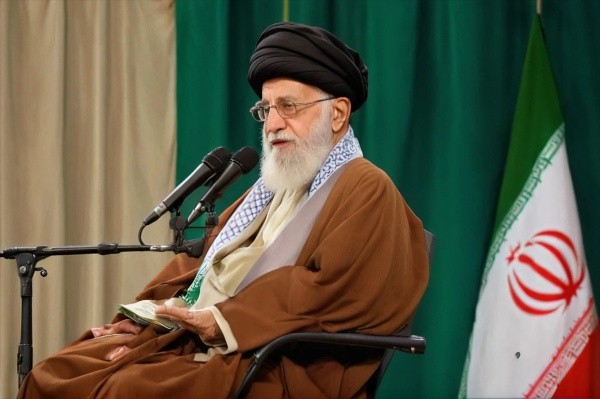Iran’s Plan to Strike Back Against the U.S.
Iran’s Military Preparations Following U.S. Attacks
Loading...

All eyes are on Iran and its possible retaliation for an assassination – blamed on Israel – in its capital.
The Assassination That Shook Tehran
In late July, the assassination of Hamas leader Ismail Haniyeh in Tehran, widely attributed to Israeli operatives, sent shockwaves through Iran's political landscape. This incident not only disrupted the delicate balance of power in the region but also presented a formidable challenge to Iran's Supreme Leader, Ayatollah Ali Khamenei. As the newly inaugurated President Masoud Pezeshkian navigates his role, the implications of this assassination loom large, forcing Khamenei to confront a bitter choice that could redefine Iran's strategic posture.
A Breach of Sovereignty
The explosion that killed Haniyeh, reportedly a missile launched from within Iran, was perceived as a direct violation of the nation's sovereignty. This incident has intensified scrutiny on Khamenei's 2003 fatwa, which prohibits the development and possession of nuclear weapons. The assassination has sparked a high-stakes debate among Iranian officials regarding the effectiveness of this fatwa in light of Iran's strategic interests. Khamenei, who has guided Iran through various geopolitical shifts over the decades, now faces the pressing need to secure the future of the Islamic Republic amidst escalating tensions with Israel.
Strategic Implications and Internal Debate
The assassination has ignited intense discussions within Iran, with some factions advocating for restraint. They argue that a retaliatory strike could lead to a prolonged and costly conflict with Israel, potentially undermining Iran and its regional allies. This perspective is shared across the political spectrum, with many hoping that a measured response could enhance Iran's leverage in future negotiations with the United States. However, Khamenei appears to be leaning towards a more aggressive stance. In a recent address, he emphasized that Iran should not be intimidated by its adversaries, warning against any form of retreat that could be perceived as weakness.
The Nuclear Question
The complexities of Iran's nuclear policy further complicate Khamenei's decision-making process. Historically, Iran has maintained a stance advocating for its right to peaceful nuclear technology while adhering to its fatwa. However, recent threats from Israeli officials regarding nuclear capabilities have prompted Iran to reconsider its strategy. The U.S. withdrawal from the nuclear agreement has also left Iran grappling with the consequences of maximum pressure policies without the expected relief from sanctions. As Khamenei weighs his options, the potential for a shift in Iran's nuclear doctrine looms large, raising concerns about a regional arms race.
Balancing Deterrence and Diplomacy
Iran's response to the assassination must strike a delicate balance between punishing Israel for its actions and avoiding escalation that could jeopardize ongoing ceasefire negotiations in Gaza. Iran's UN ambassador has articulated the need for a response that instills regret in Israel while being carefully calibrated to prevent adverse impacts on diplomatic efforts. This balancing act is fraught with challenges, as any miscalculation could lead to a wider conflict.
Khamenei's Enduring Test
Ultimately, Khamenei's choices are akin to bitter cups he must drink from, each option laden with significant risks and uncertain outcomes. The stakes have never been higher as the world watches Tehran grapple with its most critical decision in decades. With the potential for a direct attack on Israel hanging in the balance, Khamenei's leadership is under intense scrutiny. As he navigates this perilous landscape, the implications of his decisions will resonate far beyond Iran's borders, shaping the future of the Middle East and its geopolitical dynamics.
BMM - MBA
Iran’s Military Preparations Following U.S. Attacks
Troops remain in five strategic locations, raising fears of renewed tensions and long-term occupation.
Opposition forces have taken control of the capital after a significant offensive. Here is how it unravelled.
